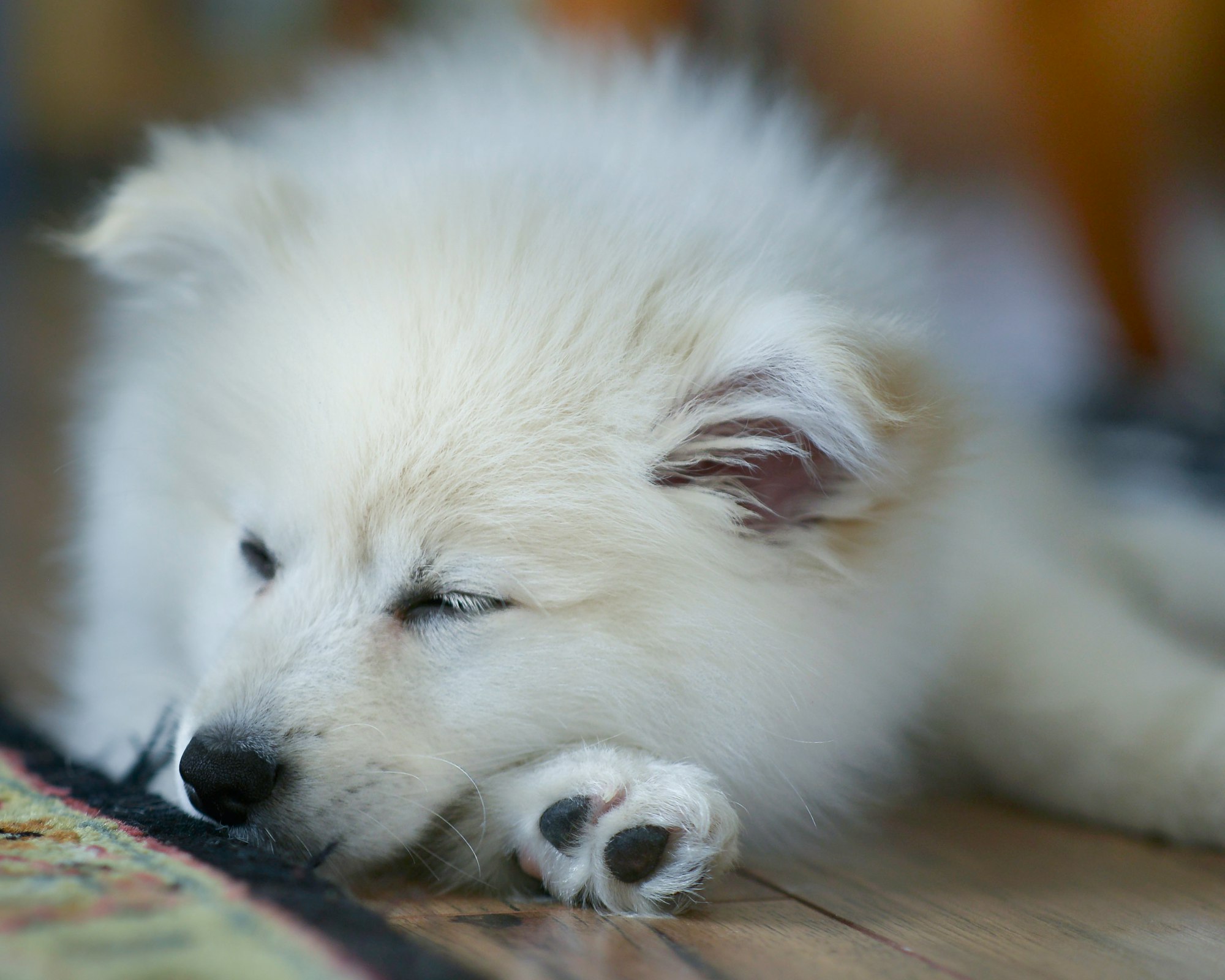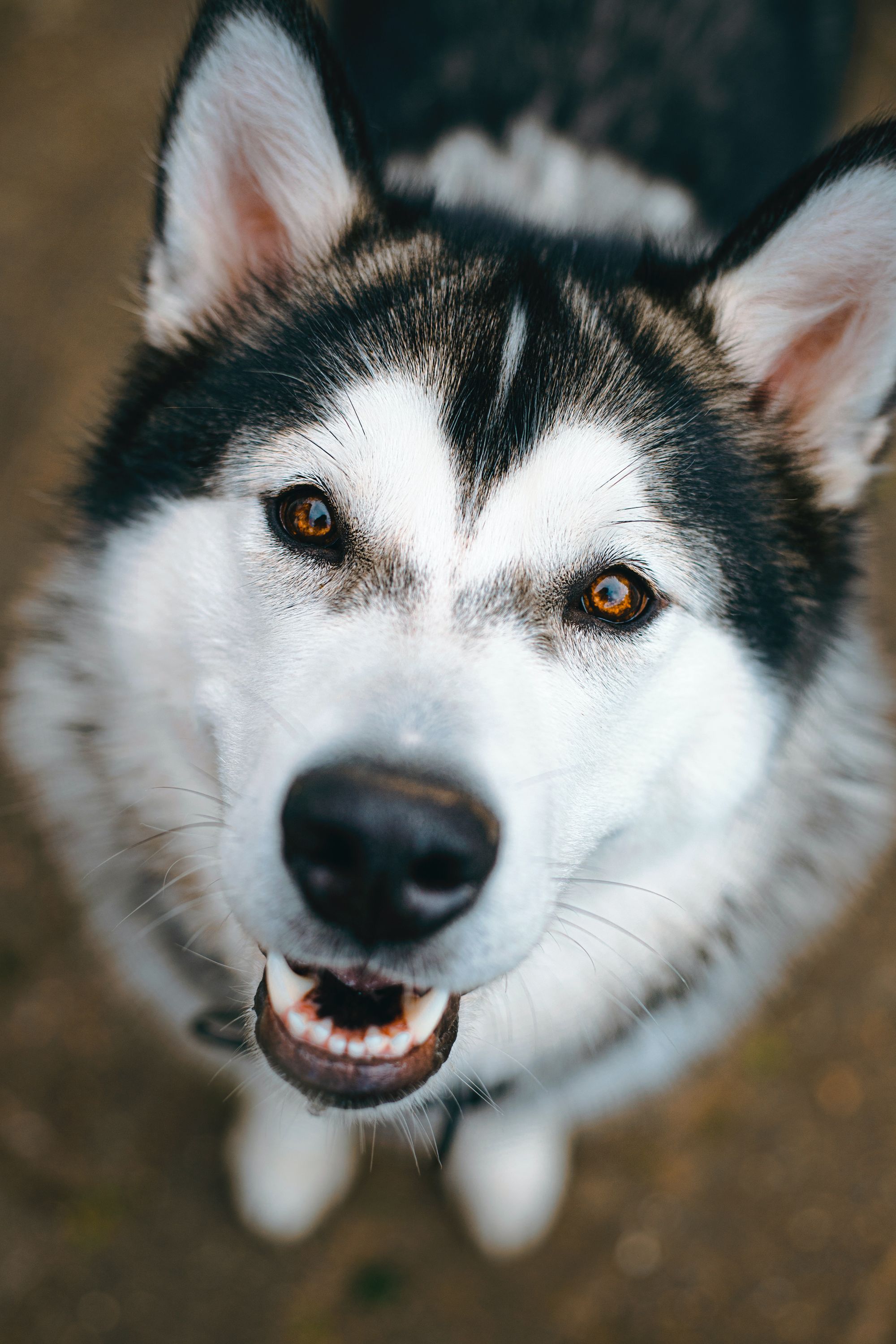When you have a new puppy, there are a lot of things you will have to learn, just like they will have to learn a lot. Puppies are adorable, but they can also misbehave a lot. You will want to correct this misbehavior, for which you should know how to discipline a puppy through positive reinforcement and rewards.
You should establish a routine with your puppy early on and make sure that they know that you are the one in charge. Setting specific times for eating and walks can help your puppy adjust and improve their behavior.
Like a young child, puppies can be an unpredictable challenge, but the rewards of this relationship are well worth it. Your puppy can quickly become your best friend, and they will adore you if you treat them well.
Puppies are very susceptible to training, although it will require dedication and consistency. You must stick with your training and stay motivated, and remember that even when it gets frustrating, it will be worth it in the end.
Is It OK To Punish Your Puppy?
Punishment is not an effective way to train your puppy. You want your puppy to trust you and understand that you are their friend and will protect them when needed. You want to be predictable to your puppy, and punishment will not be in line with this view.
If you use punishment to train your puppy, they will not understand what the punishment is for. The puppy will instead learn to associate you with punishment, and you will become untrustworthy in their eyes, which is not what you want. You love your dog and want your dog to love you back, and punishment is not the way to achieve this.
A puppy that is trained by a kind and predictable owner will still be able to learn good behavior. They will also bond with you, their owner, and you will be able to form a great relationship with your puppy.
Punishment might seem like the fastest way to train your puppy, but it will be less effective than positive reinforcement, and it will lead to a strained relationship between you and your puppy to boot. Training your puppy is possible without punishment, and it will be a highly effective method.
You should never hit your puppy, and you should avoid yelling at them. This will cause them to fear you, and it will not help them learn good behavior. Discipline is possible, but it must be done nicely.
Remember, your puppy cannot speak your language, and you cannot simply explain what you are doing and why. They will only see your anger and see that you are taking it out on them, but they will be unlikely to understand the reasoning.

Negative effects of punishment:
- Your dog is likely to become more aggressive, and the bad behaviors will become even worse
- Your dog will not trust you, and they might even grow to fear you.
- You risk harming your dog if you use physical abuse against them.
How Long Should You Punish Your Dog?
Seeing as punishment is not an effective means of training your dog, and you should not punish them. Small time-outs can be an effective means of training your dog, but they should only be about a minute long and will serve more to immediately stop the bad behavior.
Instead of lengthy punishments, you should focus on providing alternatives when you notice that your puppy is acting badly or giving them rewards when they are behaving well. Giving your puppy treats when they do something well can reinforce this behavior.
When you perform any kind of training with your puppy, you should be consistent and start early on. This will help them learn faster and better, and you will have a much easier time teaching them good behavior.
An alternative to punishment is to ignore your puppy when they are performing bad behaviors. This will teach them that being bad means getting no attention, and they will prefer to perform good behaviors instead.
Distracting your puppy or giving them something else to do instead of the bad behavior is also highly effective. Instead of punishment, redirection is effective and will motivate your dog to stray away from bad behavior.
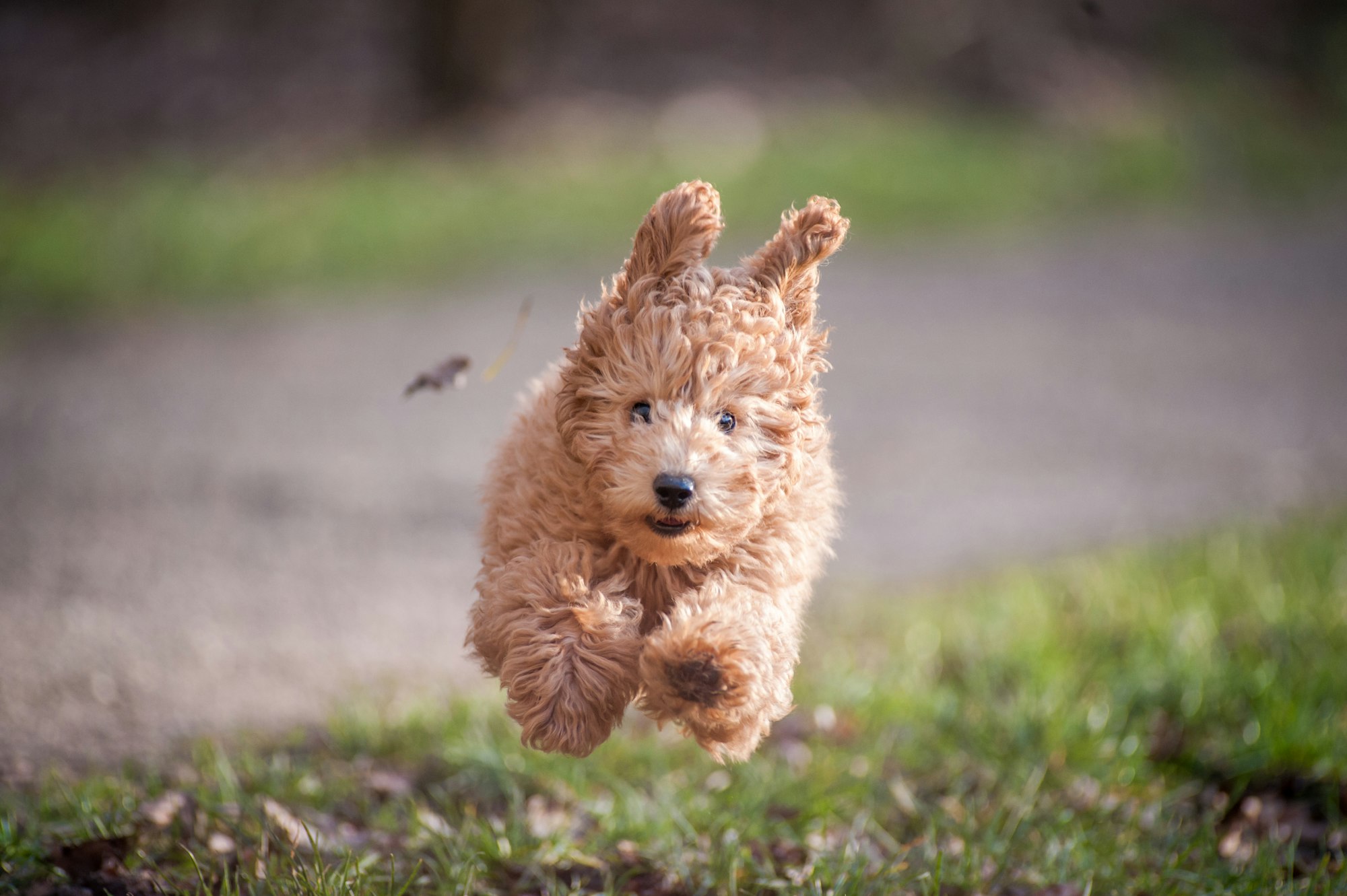
If Your Puppy Bites During Play
A puppy does not understand that they have sharp teeth and strength that can cause pain to whomever they bite. While playing, it is natural for a puppy to nip and even bite hard. This behavior is one that you will want to extinguish, as it is undesirable. It is possible to teach your puppy not to bite while playing, which will allow you to have more fun playing with your dog.
How Do You Train A Puppy Not To Bite?
Puppies will often bite when they are playing, and they likely do not realize their strength, which can cause them to bite too hard. While playing, puppies must learn bite inhibition, which is when they learn not to bite when there is no danger present.
A great way for a puppy to learn bite inhibition is when they are playing with other dogs. When they play with other puppies, a bite that is too strong will be met with a yelp, which will cause the puppy to learn to be gentler so as not to hurt their playmates.
When puppies learn to play with each other, they will wrestle, pounce, and chase rather than bite. This gentleness can translate into how they play with people, and it is an important thing for them to learn.
A great way to teach puppies not to bite is to let them put their mouths on your hands. If they bite too hard, you should yelp and make your hand go limp. This will make your puppy stop and realize that you are hurt, and then you should praise them with treats for stopping.
You should continue playing with your puppy and repeat the process no more than once every 5 minutes. If the yelping response fails to make the puppy stop, you can yelp, then ignore the puppy or move away as a short time-out period.
It is very important that during this training process you promote gentle playtime while discouraging biting. You want your puppy to play, and you just don't want them to bite while doing so. As you continue to play gently with your puppy, they will learn not to bite, and you will be able to enjoy playtime!
Teach Your Puppy That Teeth and Skin Do Not Belong Together
If your puppy is trying to nip on your skin, such as your toes or fingers, you should give them a toy instead. Another alternative is to give them a bone or treat that will take them a while to chew. This will teach them that they should not be chewing on people and instead should focus on toys and bones that are meant to be bitten.
It is common for a puppy to put their mouth on your hands while you are petting them, and this bad behavior should be trained against. When you notice this behavior, you should give them small treats from the hand that they are not biting. This will give them an alternative, and with time they will not try to mouth your hands while you are petting them anymore.
If your puppy is constantly biting during play, you can introduce new types of playtime that do not involve contact between you and your puppy. You can play fetch with a ball or toy and teach them this form of play that doesn't involve contact between parties. You can also play tug-of-war with a rope or toy or teach them how to play with a flirt pole.
Chewing Over Discipline
If your puppy is biting too much, you can just give them something else to bite instead of disciplining them. This is an effective way to train your puppy in a way that will feel natural to them. Your puppy instinctively wants to bite, and this won't go away, so instead, you can direct them elsewhere when this instinct arises.
Some great methods to teach your puppy that playtime doesn't mean biting:
- Keep a toy in your pocket and bring it out whenever your dog is biting you, even if it is not while you are actively playing.
- Freeze if your puppy is nipping at your feet or ankles while you are sitting or walking around, and do not move again until your puppy stops biting.
- Provide your puppy access to plenty of fun, interesting, and new toys so that they will focus on these when they feel like biting rather than want to bite your skin.
- Once your puppy is vaccinated, allow them to socialize with other dogs so they can learn not to bite them. This also has other benefits as it allows them to learn new skills, they can get tired out from this playtime, and they can make friends.
- Give your puppy a time-out whenever their teeth touch your skin so they learn not to do that.
- You can use a bad-tasting spray to get your dog to associate biting skin with a bad taste which will teach them not to bite.
It is important to be patient while teaching your dog not to bite. It is natural for a puppy to nip while they play, and they do not know any better. With time and patience, you can train your dog against this behavior, but you should be compassionate while doing so.
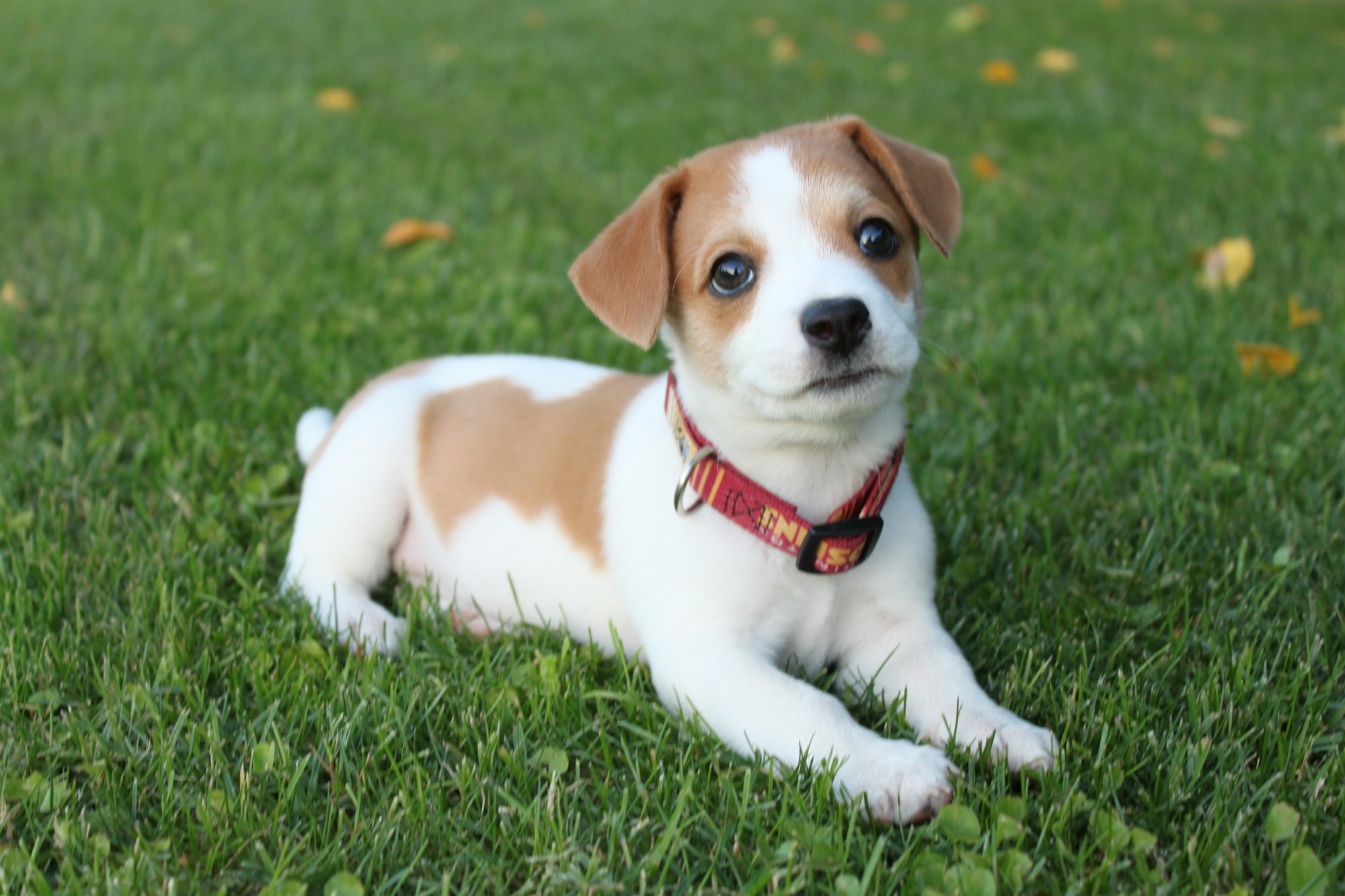
How do you punish a dog that won’t listen?
If your puppy does not respond to verbal cues, it is likely not just because they want to defy you. Dogs do not always listen because they might be rewarded or encouraged by the situation, which causes them to continue their behavior.
If you notice that your dog is repeatedly not listening to you, you should try to figure out if the way that the situation is set up is rewarding them. Bad behavior can be self-rewarded in this situation, and this will cause the puppy to continue performing this bad behavior. Even if you are not giving your dog a reward or positive reinforcement, they might be getting it, and that could cause them not to listen to you.
Certain behaviors feel good for the dog, but they might be negative or even dangerous, such as leash pulling. If you figure out that the situation itself is giving the dog what they want, you should remove the situation and train them elsewhere so they do not continue those bad behaviors.
This process can be challenging and may take time, but if they do not listen to you, it is necessary to figure out the root cause. It can be frustrating when your dog fails to listen to you, but they are likely doing it on accident, as they have a hard time telling apart various sources of reinforcement.
Dogs aren’t great with language
Dogs do not speak the same language as humans, so their natural means of communication include body language. It will take time to introduce them to verbal commands and have them understand what you are asking. You will have to be patient when teaching your dog words like "sit" or "stay," but with repeated training, they will learn to follow your commands.
Dogs will often follow your body language when you are giving commands as well. Pointing to the ground when you want them to sit or putting your hand out when you want them to shake your hand can help teach them certain commands.
Because dogs do not understand spoken human language, you should train them using the idea of actions and consequences. Giving them rewards for performing the behavior that you want them to do can help them understand that these are good behaviors.
It is also important not to overwhelm your dog. Asking them to do too many things at once can quickly become confusing, and it will end up confusing them even more. You should take your time when giving commands and start with simple individual commands before moving on to more complex requests.
If you plan to ask your dog to perform multiple commands at once, you should reward them after each action. Dogs can perform multiple commands, but they will have a hard time doing them all in a row if they have never done it before. With repeated training, a puppy can learn to first sit, then stand, then roll over, but it will take time.
It might be tempting to try to get your dog to perform really complex behaviors right away, but you will need to give them time to understand simpler behaviors first. Dogs won't immediately understand what you are asking for, but with repeated reinforcement, they will be able to learn, and what they are capable of may pleasantly surprise you.
Maturing Can Change Your Puppy’s Behavior
Your puppy will act differently when they are young than when they grow older. Puppies usually have a lot of energy, and they will calm down as they mature. They will also be curious about the world, and they will be excited to explore all the new things around them.
Older puppies are also more independent, and they might be more sure about the activities that they do or do not want to do. That is why it is important to train them as early as possible so that they establish good behaviors early on.
It is also important to be consistent about training. If you use small treats to reward your puppy for performing certain behaviors, you should keep up with this even once the behavior is learned.
Different breeds of dogs also have different behavioral tendencies, and this might affect how they mature and change over time. Regardless, all dogs mature as they grow up, and they will likely become calmer and better behaved.
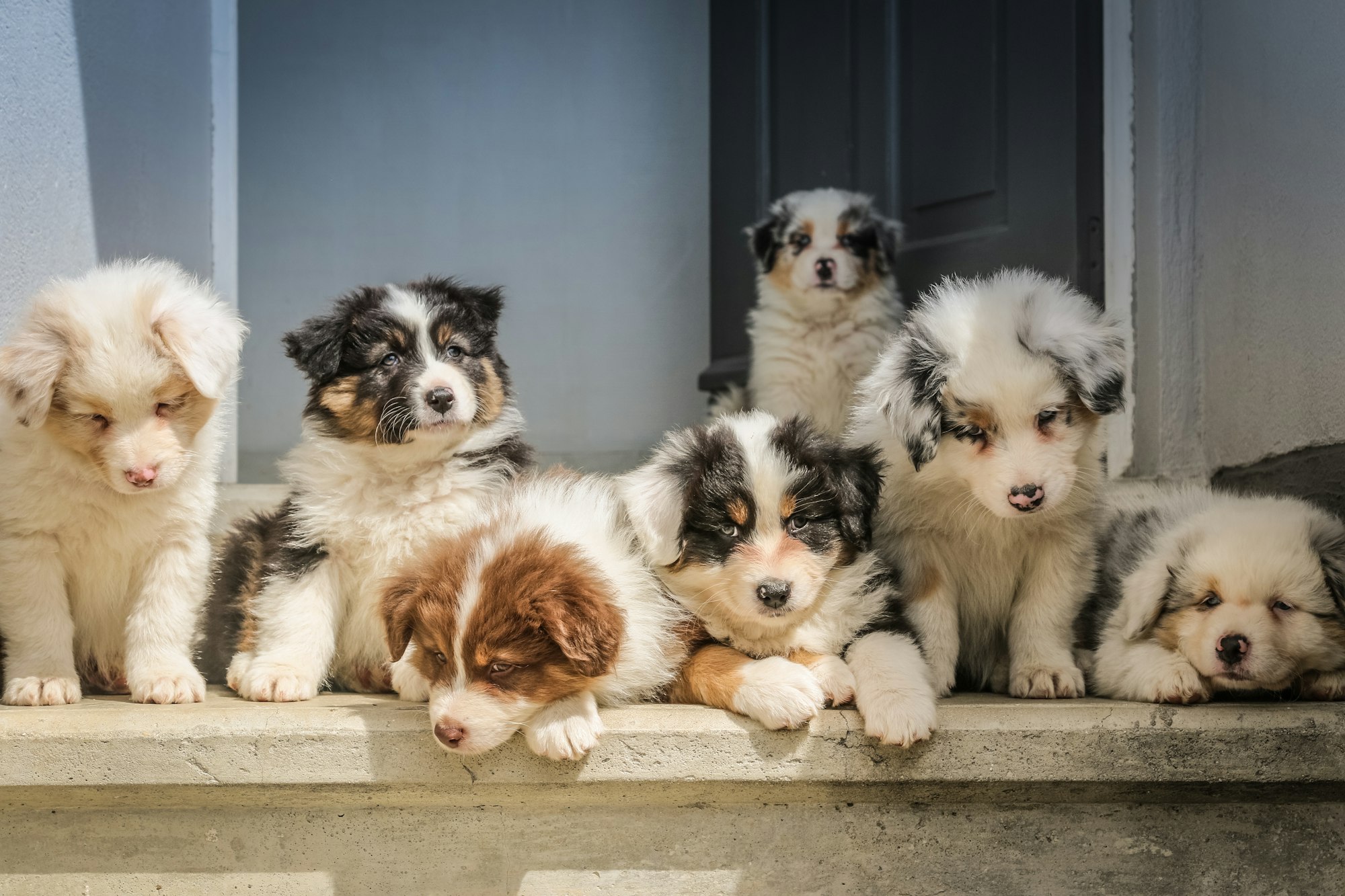
Final Thoughts
Puppies will likely need discipline, as they can be extremely hyperactive and do not understand the meaning of nice things. They might bite you or the furniture or simply misbehave, and you will likely want to correct this behavior swiftly and efficiently.
The most important part of disciplining a puppy is remembering to be patient. It can be a frustrating process at times, but it will be well worth it in the future. Instead of viewing it as discipline, you should view it as training and focus on using positive reinforcement and rewards.
Your puppy will form a deep bond with you, and you want that bond to be a positive one. If you are harsh with your puppy, they might grow up and be distrustful toward you, and that is not something that you want. You want your dog to trust you and view you as a friend, which is why it is important to be gentle and understanding throughout the training process.
Your puppy will be a major part of your life, and you will become a major part of theirs. You should cherish this relationship, as it is very beneficial and can bring you and your puppy great joy.
Get more expert advice on pet-parenting by visiting the Off Leash blog at TryFi.com.
TryFi's The Fi Dog Collar is a must-have for any pet parent, it's a GPS tracking collar that helps you keep tabs on your dog's location, activity, and sleep patterns, and alerts you if they escape your backyard. Try the Fi Dog Collar today!
